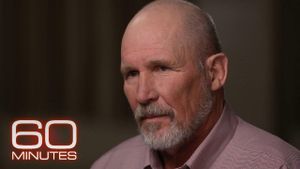A fierce internal conflict has erupted within the Karnataka unit of the Bharatiya Janata Party (BJP), spurred on by dissatisfaction over handling the Waqf issue. The tensions came to the forefront during protests organized by Vijayapura MLA Basanagouda Patil Yatnal, who has consistently positioned himself against the leadership of state BJP chief B.Y. Vijayendra. Yatnal's dissent was ignited by accusations against the Waqf Board, which he claims is attempting to encroach on farmers' land and property belonging to Hindu temples and educational institutions.
The alleged encroachments catalyzed Yatnal's month-long protest, which began unusually without the official blessing of the state party leadership. Banners announcing the protest prominently displayed images of national leaders like Prime Minister Narendra Modi and Home Minister Amit Shah but starkly omitted the presence of state president BY Vijayendra. This deliberate exclusion has reignited accusations of factionalism within the party, illuminating the growing divide.
State BJP leaders expressed their disappointment as the Bidar district chief lodged complaints against Yatnal’s group for using the party's insignia and leader images without authorization. The defiant banners remained, showcasing the rift within BJP's Karnataka structure. Yatnal, who has repeatedly targeted Vijayendra for the poor performance of the BJP during recent by-elections, publicly blamed him for the party’s failures. He didn’t hold back, criticizing Arun Singh, the party's state overseer, alleging he was merely acting as a mouthpiece for Vijayendra and former Chief Minister BS Yediyurappa.
This flare-up follows troubling results for the BJP at the polls, with many within Yatnal's camp citing leadership failures as the cause. With the party's credibility at stake, Yatnal's faction—comprising several senior leaders—seeks to take the reins of the narrative. Currently, BJP state leadership is scrambling to stabilize the situation, emphasizing the necessity of unity ahead of future elections.
While the internal dispute casts a long shadow, both factions seem determined to rally public support over the Waqf properties issue. The BJP state chapter had initiated plans for its own statewide campaign focused on Waqf Board issues, but Yatnal's unorthodox approach of conducting parallel protests contrasts starkly with the official party stance, leading to increased frustration among party elders.
Despite the rift, the ramifications of this conflict ripple beyond party lines. Congress has seized this opportunity to counter-attack, with Karnataka’s IT minister Priyank Kharge calling out the BJP for hypocrisy. Kharge referenced past actions of the BJP administration, which issued numerous notices to farmers over Waqf land, making claims of altruism dubious at best.
Kharge stated, "BJP is playing foul on the Waqf issue... This is clearly not about farmers but rather internal power struggles within the BJP." The Congress party plans to capitalize on this unrest, consistently highlighting BJP's inability to govern effectively.
The rivalry between the factions is compounded by speculation surrounding the authenticity of Yatnal's motives. Both the internal struggle and external perception shifts matter deeply, especially as the BJP has faced increasing challenges handling local governance and activism from opposition parties. The need for repairs, both politically and organizationally, is evident.
Notably, some believe the timing of Yatnal’s protest aligns with Vijayendra’s own awareness campaign titled ‘Namma Bhoomi, Namma Hakku’ (‘Our Land, Our Right’), aimed at rectifying Waqf-related grievances across the state. Ironically, Yatnal is part of these awareness teams but chose to organize his protests independently, showcasing regional tensions and the lack of cohesion even among party members undertaking seemingly aligned missions.
Political analysts warn this spectacle could alienate voters, as citizens increasingly disapprove of party factions placing personal aspirations above community concerns. A growing sentiment among constituents is urging more accountability and moral clarity from their elected representatives. Restoring faith among voters will be increasingly difficult if the rift continues to widen.
Meanwhile, party stalwarts have indicated they may seek intervention from the BJP's high command to mediate this growing conflict, albeit reluctantly. Such actions are viewed as necessary, considering the party’s credibility and future electoral outcomes are at stake. Yatnal’s camp, undeterred, remains vocal, fully prepared to challenge the established order and press for enhanced visibility and authority.
The internal dynamics of the Karnataka unit exemplify the complexity of contemporary Indian politics, where intra-party disputes can have significant repercussions. The Waqf issue has unwittingly exposed underlying fractures within the BJP, leaving observers pondering how this might affect broader governance as well as intra-party unity moving forward.
With public interest piqued and rival factions vying for dominance, this situation could mean the BJP faces tougher battles than expected as it gears up for upcoming elections. The party’s response strategy and its ability to resolve conflicts will be areas to watch in the coming months, shaping not merely its fortunes but also the larger political narrative of Karnataka.



